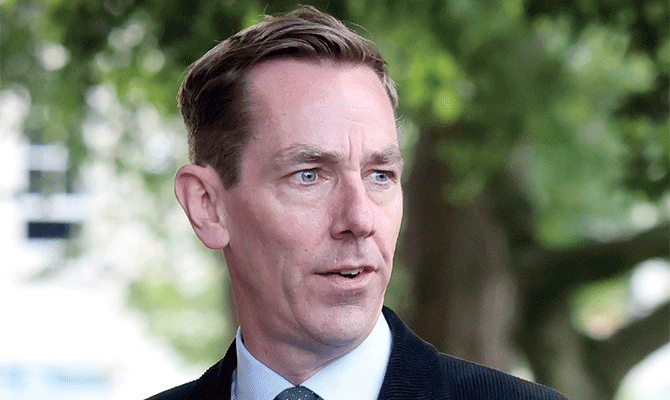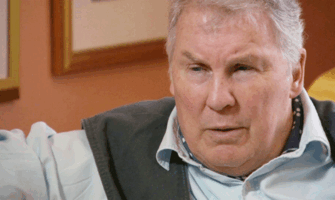
When Ryan Tubridy finally acknowledged his part in the payments scandal that rocked the national broadcaster it was too late – the public, his colleagues and politicians had already lost faith and his career in RTÉ was over.
AFTER YEARS of dire warnings about incompetent management, waste and dubious work practices, the scandal surrounding secret payments to Ryan Tubridy finally laid bare the whole decaying edifice and the end of RTÉ, as we know it, is coming fast.
In March Tubridy made the surprise announcement that he would not be continuing with The Late Late Show. While in public RTÉ made much of the race to find his successor, the real action was happening in the background. An accountancy investigation found that Ryan had been getting secret payments of €70,000 a year for the previous three years, along with a mysterious €120,000 that wasn’t paid but was accredited to him, leading to one of the biggest scandals for years in Irish public life.
He was immediately taken off air from his radio show in what has become a personal disaster for him and a self-inflicted implosion for RTÉ.
Ryan, backed by “agent to the stars”, the combative Noel Kelly, failed to see the seriousness of his predicament. A statement claiming the payments had nothing to do with him and it wasn’t his business how RTÉ did its accounting backfired badly. After a weekend of public vilification and sorrowful posing for photographers, Tubridy acknowledged his part in the RTÉ scandal. Too late. The public, his colleagues and politicians had lost faith and his RTÉ career was over. But it was weeks before he and those around him realised it.
The fall out for RTÉ has been seismic and Kelly has seen himself cancelled by RTÉ’s new director general Kevin Bakhurst.
Then DG Dee Forbes was suspended for agreeing the secret payments by new RTÉ chair Siún Ní Raghallaigh and Forbes resigned five days later. Cue a round of political investigations where the gross incompetence of RTÉ’s top brass was cruelly exposed to public gaze. Ní Raghallaigh failed to win the confidence of various Oireachtas committees or communications minister Catherine Martin.
The Tubridy payments proved to be only part of the problem. A slush fund, officially dubbed a “barter account”, was uncovered. Not only had it been used to funnel secret payments to Tubridy, but clients and senior staff also benefitted with trips to rugby world cups, U2 gigs, meals, flip flops and membership of the Soho club in London.
Serial resignations followed that of Forbes. RTÉ head of commercial Geraldine O’Leary ended up taking early retirement over the barter account. Head of development Rory Coveney went over a €2.5m loss on the flop Toy Show the Musical. Chief financial officer Richard Collins, who laughably didn’t know what his salary was when questioned at the Public Accounts Committee, followed him out the door. Bumbling performances by deputy DG Adrian Lynch mean that he cannot be far behind Collins and director of legal Paula Mullooly recently announced her departure.
But the two key players in the RTÉ Tubridy payments scandal, Forbes and head of content Jim Jennings, have yet to put in an appearance at the Oireachtas, citing ill health, much to the angry frustration of the politicians.
There are multiple investigations into various scandals at RTÉ and Bakhurst is showing signs of someone regretting his return to Donnybrook. An investigation into bogus self-employment involving some 700 staff will cost the organisation up to €20m to settle with Revenue and will lead to more resignations among management once finalised.
An inquiry into voluntary redundancy schemes will lead to multiple claims against RTÉ by employees refused redundancies. That investigation was called after former CFO Breda O’Keefe volunteered that she had left RTÉ on a redundancy package, while her position was later filled. The inquiry is expected to find that at least three senior managers left under redundancy packages to which they may not have been entitled.
A full-scale revolt on the licence fee is under way and that form of revenue collection for RTÉ must now be dead. As Bakhurst tries to draw up a survival plan, he knows that his political masters have no faith left in RTÉ.
On air, things were hardly any better for the broadcaster. New Late Late Show host Patrick Kielty started with huge public support but a guest list of RTÉ canteen regulars has seen viewing figures plummet. Claire Byrne’s replacement on TV, Katie Hannon – one of RTÉ’s most professional but unsung broadcasters – has fared even worse. Denied any kind of star quality, the Upfront show has flopped and regularly has just 105,000 viewers. The station’s flagship current affairs offering, Prime Time, often does little better.
Meanwhile, anyone who can get out is leaving. Six One News presenter Caitríona Perry left one of RTÉ’s most high-profile jobs to join the BBC in the US. Several others have followed her out the door and the axe is hanging over Fair City, which seems likely to face the chop in cost-cutting exercises.
Salaries for RTÉ stars will soon be capped at €200,000 thanks to the fallout from the scandal, but top earner Joe Duffy will escape a pay cut. He still has a year to run on a two-year extension to his €351,000-a-year contract. The last of the old breed.


















